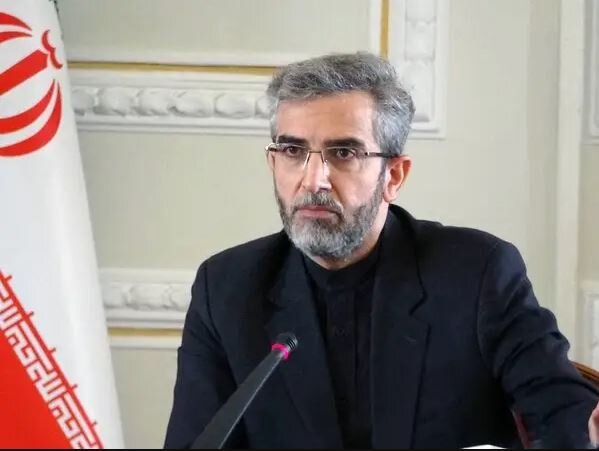Meet the new top officials of Iran

MADRID- Following the tragic accident that claimed the life of President Raisi and the other accompanying individuals, Article 131 of the Iranian Constitution was set in motion. According to this article, the first vice president, Mohammed Mokhber, was appointed by the Leader of the Islamic Revolution, Ali Khamenei, as interim president until the scheduled elections on June 28th.
Mohammed Mokhber was born in 1955 in Duzfel, located in the Khuzestan province, in the south of the country, within a deeply religious family. His father, Ayatollah Abbas Mokhber, stood out as one of the prominent Shiite clerics in his hometown. During his childhood and adolescence, he pursued his primary and secondary education in Dezful and Ahwaz, respectively. Subsequently, he entered university, where he earned a bachelor's degree in Electrical Engineering, a master's degree in Management specialized in Systems, and a doctorate in Management and Economic Development Planning. Additionally, he has studies in International Law.
In the 1980s, during the war between Iran and Iraq, Mokhber served as an officer in the medical corps of the Islamic Revolution Guard Corps. After the conclusion of the war, in the 1990s, he was appointed as the Director General of the Dezful Telecommunications Company. Later on, he rose to the position of vice governor of Khuzestan province.
Later on, he joined the well-known Foundation for the Oppressed (Bonyad-e Mostazafan), an organization tasked with providing a wide range of services, primarily of a social nature, to millions of Iranians. From a political perspective, the existence of bonyads could be seen as a potential alternative to the neoliberal order. It is important to remember that, for the Islamic Republic, the category of "mostazafin" is fundamental in understanding how the world is perceived from an Islamist perspective; the world is seen as a confrontation between the oppressed (mostazafin) and the oppressors (mostakberin).
Since 2007, Mokhber has held the position of head of the organization known as the "Execution of the Imam Khomeini's Order" (Setâd-e Ejrây-ye Farmân-e Emâm in Farsi). According to Ayatollah Khamenei, the purpose of this organization is to "assist the underprivileged classes of society." It is essential to highlight that when referring to Setâd, as it is known in Iran, it denotes a conglomerate under the direct supervision of the Leader. Therefore, it is important to note the close relationship between Setâd's officials and the Leader. In fact, Setâd is obligated to report its activities solely to the Office of the Leader, Ayatollah Khamenei.
During Mohammad Mokhber's tenure at the helm of Setâd, significant initiatives were undertaken, such as the establishment of the "Barakat Knowledge Institute," whose main function is to expand the ecosystem and infrastructure for the development of scientific activities based on the Islamic model. Additionally, the well-known "Barakat Pharmaceutical City" was created. During the COVID-19 pandemic, Setâd played a crucial role in the production of masks and disinfectants. Later on, the Foundation initiated the production of the Iranian-made COVID-19 vaccine.
When the late President Raisi won the elections in August 2021, he appointed Mokhber as the first vice president of the country. Additionally, Mokhber is a member of the Assembly of Experts, one of the main organs of the institutional architecture of the Islamic Republic. This council's primary functions include advising the Leader on political matters.
On the other hand, Ali Bagheri Kani, 57, assumed the position of Acting Minister of Foreign Affairs following the death of Hossein Amir Abdollahian. He was born in Kan, near Tehran, also into a deeply religious family. His father, Mohammad-Bagher Bagheri Kani, is a prominent cleric, former member of parliament, and the Assembly of Experts.
His uncle, Mohammad Reza Mahdavi Kani, also a cleric, served as interim prime minister for one month in 1981, during the presidency of the current Leader, Ayatollah Khamenei. Additionally, he held the position of Minister of Interior for one year, from 1980 to 1981. On the other hand, the brother of the new Acting Minister of Foreign Affairs, Mesbah al-Hoda Bagheri Kani, is the son-in-law of the Leader.
Bagheri Kani studied economics at Tehran's Imam Sadiq University, in addition to Islamic studies. In 1994, after a brief period at Radio and Television, he began working at the Ministry of Foreign Affairs. From 2007 to 2013, he was part of Iran's nuclear team during Mahmoud Ahmadinejad's government, participating in nuclear negotiations alongside Saeed Jalili. During the 2013 presidential elections, Bagheri Kani served as Saeed Jalili's campaign manager and also as his vice president on the Supreme National Security Council.
On December 28, 2019, by decree of Ebrahim Raisi, Ali Baqeri Kani was appointed as Vice President for International Affairs and Head of the Human Rights Committee of Iran's Judiciary. This committee, established in 2005 during the tenure of the late Ayatollah Hashemi Shahroudi with the approval of the Leader, operates as a subdivision of the Judiciary. Its main function is to represent the diplomacy of the Iranian judicial system and respond to accusations of human rights violations in international forums.
On September 23, 2021, by decree of the then Minister of Foreign Affairs, Hossein Amir Abdollahian, Ali Baqeri Kani was appointed as the Deputy Foreign Minister for Political Affairs at the Ministry of Foreign Affairs of Iran, replacing Seyed Abbas Araghchi in the position. Baqeri Kani was appointed as the chief negotiator in the nuclear talks with the United States and the European Union.
It could be argued that both the new acting president, Mohammad Mokhber, and Baqeri Kani will continue the legacy of their predecessors, emphasizing their commitment to the Palestinian cause, firmly supporting the Resistance Axis, and opposing Western presence and influence in the region. Moreover, several experts in the foreign policy of the Islamic Republic suggest that they will adhere to the well-known policy of "Looking East," a fundamental characteristic of the Raisi-led government. This strategy entails strengthening political, economic, and strategic ties with countries in the eastern hemisphere, particularly in Asia, in order to expand alliance networks and diminish Western influence.
